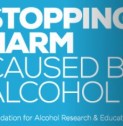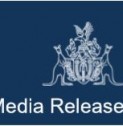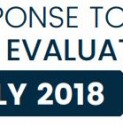Aims:
- To undertake a 12 month impact evaluation of the reintroduction of the Banned Drinker Register (BDR) in the Northern Territory.
Summary:
- The BDR is a policy initiative which aims to improve community health and safety by reducing alcohol-related harms. It is an explicit alcohol supply reduction measure that involves placing people that consume alcohol at harmful levels, to themselves or others, onto a register which prohibits the consumption, possession or purchase of alcohol. In its current format, the limitation of purchasing is enacted through take-away alcohol outlets. The length of time an individual is on the BDR may differ from three, six or 12 months.
- The BDR had initially been introduced in 2011-2012. It was decommissioned swiftly during a change of government, without any formal evaluation of the planning and implementation processes, or subsequent impacts or outcomes.
- The BDR was officially reintroduced in the NT on 1 September 2017. The Minister for Health made a commitment to regularly evaluate the BDR with independent oversight. Menzies School of Health Research was approached to assist with this task for the 12-month impact evaluation.
Overarching questions that have guided the evaluation process:
- What has happened in the first year of implementation of the BDR?
- Does the BDR adequately target people misusing alcohol?
- Has the BDR reduced the frequency of banned drinkers’ contact with the justice system?
- Has the use of specialist therapeutic services changed under the current BDR?
Implications for policy and practice:
- The evaluation included 12 recommendations directed towards the Northern Territory Government to inform future policy, practice and research related to the BDR. The recommendations can be read here.
Our research has found:
- BDR is one of many alcohol harm minimisation policy initiatives, it does not work in isolation. It forms part of the contribution in achieving a healthier and safer community by reducing alcohol-related harms.
- The influences, impacts and outcomes of the BDR need to be understood in the context of other alcohol harm minimisation policy reforms and initiatives underway in the NT (such as those outlined in the Alcohol Harm Minimisation Action Plan 2018-19).
- The effectiveness of the BDR is best understood longitudinally. The results of this impact evaluation should be used as an initial baseline. Impacts on health behaviour change will become more evident once the 24-month evaluation is completed and throughout subsequent evaluation processes.
- There is potential to strengthen support for people on the BDR by examining their parallel engagement with health and justice systems more closely. This will require increased investment in data-linkage capacity.
- The BDR provides a unique opportunity to engage in more assertive alcohol-related community development health promotion activities at a population level.
- An increased focus on both service provider and public perceptions of the effectiveness of BDR is warranted, and should be incorporated into Part 2 of the 12-month evaluation. This will provide additional context to tailor parallel alcohol intervention strategies.
Project Manager
Contact info
Projects dates
Part 1 completed; Part 2 to be completed by June 2019.
Funders
Collaborators
Dr Michael Livingston, Senior Research Fellow
Centre for Alcohol Policy Research, La Trobe University
This report provides a comprehensive first look at the impact of the implementation of the Banned
Drinkers Register in September 2017. The report provides an extremely detailed look at the impacts
thus far and suggests some positive effects on individuals on the BDR, especially those with a history
of significant interaction with the justice system. In contrast, the current data does not support major
impacts on population levels of alcohol-related harms, with no clear decline on most indicators.
The report is incredibly detailed, providing an essential benchmark for the ongoing evaluation of the
BDR. It particularly highlights the potentially gradual positive impacts of the register on people’s
lives. More research into the intersection between the BDR and the health system is critical as is more
detailed analyses of population-level data to understand what’s driving current trends. The potential
impact of the BDR on getting people into treatment also needs to be further explored.
Qualitative research will be critical in unpacking the data presented here – the next wave of the
evaluation will provide a richer look at the ongoing impacts of the BDR.
Michael Thorn, Chief Executive
Foundation for Alcohol Research and Education (FARE)
The imposition of personalised controls on problematic drinkers has a long history, but is a
controversial policy intervention with a chequered history. The Northern Territory Government’s
Banned Drinker Register (BDR) program is the latest iteration, but it comes with a degree of novelty
and commitment that deserves serious consideration by critics.
Evaluation of measures such as the BDR is both invaluable and necessary if the program is to endure.
If in fact the evidence shows it should.
This 12 month report is impressive in the way a considerable body of data has been assembled,
analysed and assessed in a comparatively short period of time. Political imperatives aside, the
evaluation report shows clearly that the BDR has quickly moved to scale with more than 3,600 people
already on the register. The initial data collection appears sufficiently robust to make judgements
about the program’s performance and the early results are promising. Recidivists comprise a minority
of registrations and the majority only record one contact with the system.
At this early stage the assembled data reveals important details about drinking and antisocial
behaviour, including the offending behaviour of problematic drinkers. This data and the results of the
analysis will be invaluable for policy makers responsible for formulating interventions to significantly
reduce the prevalence of this behaviour, improving the lives of heavy drinkers and enhancing
community wellbeing.
I look forward to future reports on the BDR’s progress and to more detailed analysis of its progress
and performance towards meeting the policy objectives set by the parliament and by the program’s
administrators to reduce the supply of alcohol to a highly problematic group of drinkers.
Professor Peter Miller, Director
Centre for Drug use, Addictive and Anti-social behaviour Research (CEDAAR), Deakin University
Alcohol kills more people globally than AIDS, violence and road accidents combined, and is the
leading cause of death in people aged 15-40. The NT has the highest per capita consumption in
Australia and alcohol-attributable deaths occur in the NT at about 3.5 times the rate they do in
Australia generally. In this context, strong measures are clearly justified and the NT Government’s
focus on alcohol will provide important lessons for the NT and other governments nationally and
internationally.
For this reason, and to ensure the best mix of policy intervention and value for money of tax-payer
dollars, the ongoing and rigorous evaluation of the BDR is essential. This report provides further
evidence of the impact over time and does an excellent job of showing the community-wide trends as
well as highlighting the wide range of outcomes in this complex group of people with multiple and
complex needs.
This report highlights some promising changes. In particular, most banned drinkers who had
predominantly non-criminal events prior to the BDR (Group 1) continued to either appear in the
justice system for similar types of non-criminal events (40% moved to Group C), or had no further
alcohol-related contacts (40% moved to Group D). Further, 30% of those with mixed criminal and
non-criminal events, had no alcohol-related events in the justice system during the follow-up period.
Another important element is that there is a very positive increase in the use of treatment services
since the BDR was implemented, primarily being driven by people on the BDR.
The largest group of people on the BDR had no alcohol-related events.
The report also highlights the ongoing challenges with some people for whom the BDR is not yet
helping, and the need for more intensive, and different types of support.
It is also clear that the impact of the ban is gradual, rather than immediate – which is an important
lesson going forward.
One trend which reminds us of the difficulty of investigating a single intervention in the context of a
multi-faceted response to alcohol across an entire state is the spike in events and harm between
December 2017 and July 2018. Differences between Darwin and other cities suggest there might be
an impact in terms of changed implementation of the Point of Sale Intervention (POSI) (which did not
occur in Darwin). These differences are worth exploring in more depth in future evaluations.
This report has shown the value of systematic, transparent and regular evaluative reporting. With
the increased investment in data-linkage capacity, especially in treatment and law enforcement data,
the continued evaluation of the BDR will be an important precedent for future evaluations.
-

ABC Darwin Mornings | Sarah Clifford on the History of alcohol laws in the Northern Territory
Menzies PhD student Sarah Clifford on her study of the history of liquor laws in the Northern Territory and alcohol policy.
-

Drinkers get grog despite register
The article, which was published in the Australian Journal of Public Administration last week, summarises the findings of two 2019 studies by the Menzies School of Health Research, in which NT licensees were interviewed about their views on alcohol policy.
-
Sunday Territorian - Bushranger
Mention of Menzies Tuesday Seminar
-

Sunday Territorian | Liquor watches drunk on power
Sunday Soapbox opinion piece - Hayley Sorensen - mentions Menzies research on the costs and harms of alcohol consumption in the Northern Territory
-
MENZIES SCHOOL OF HEALTH RESEARCH RECOGNISED WITH NATIONAL AWARD
Menzies School of Health Research, has won the Research Award at the 2019 National Alcohol and Other Drugs Excellence and Innovation Awards in Melbourne.
-
drinktank | Understanding the harm of alcohol consumption
On Drink Tank today, Professor James Smith from the Menzies School of Health Research looks at a couple of the major policies adopted by the government which were influential in securing this award for the Territory.
-
According to NT government, their alcohol reforms are working
The social and economic cost of alcohol-related harm in the NT has increased according to research released by the Menzies School of Health Research.
-

NT News | Alcohol related problems are costing Territory Taxpayers
Menzies School of Health Research | social and economic costs of alcohol in the Northern Territory.
-

NT govt claims grog reforms are working
The social and economic cost of alcohol-related harm in the NT had increased from $642 million in 2009 to $1.38 billion per year, research released on Thursday by the Menzies School of Health Research said.
-
Katherine goes against the trend on alcohol harm
Further, research conducted by the Menzies School of Health Research shows the social and economic cost of alcohol-related harm in the NT has increased from $642 million in 2009 to $1.38 billion per year.
-
More banned drinkers busted trying to buy grog in Katherine than anywhere else
The independent evaluation overseen by Menzies School of Health Research points to a reduction in the supply of alcohol to problem drinkers and reductions for individuals whose alcohol related behaviour was causing repeat offending.
-
Safer Communities: BDR Evaluation Shows Positive Results
The independent evaluation overseen by Menzies School of Health Research points to a reduction in the supply of alcohol to problem drinkers and reductions for individuals whose alcohol related behaviour was causing repeat offending.
-
'Long-grassers' admit easy access to grog despite reintroduction of banned drinker register
A six-month review of the BDR conducted by the Menzies School of Health Research showed it was having an impact, but was not intended to work effectively in isolation.
-
NT Government media release | Evaluation of BDR
Safer Communities and Generational Change: Alcohol Reform Progress Update Report and BDR Evaluation Response
-
Katherine Times | Alcohol reforms rolled out, BDR on track
The BDR Evaluation covers the first 6 months of operation and was conducted independently by Menzies School of Health Research and released in June 2018.
-
EXPERT REACTION: NT to be first jurisdiction in Australia with minimum floor price on alcohol
The Northern Territory will become the first Australian jurisdiction to put a floor price on alcohol. The NT Government says that it would implement a minimum $1.30 floor price per standard drink for all alcoholic beverages. Aussie experts react to the story
Resources
- 12 Month BDR evaluation compendium report- Part 2
- 12 Month Evaluation of the BDR in the NT
- Executive Summary and Key Recommendations
- Recommendations from the 12 Month Evaluation of the BDR in the NT
- Emerging Alcohol Policy Innovation in the NT (editorial)
- 12 Month Evaluation of the BDR in the NT (expert commentary)
- Industry views about the Banned Drinker Register in the Northern Territory: Early lessons from a qualitative evaluation










